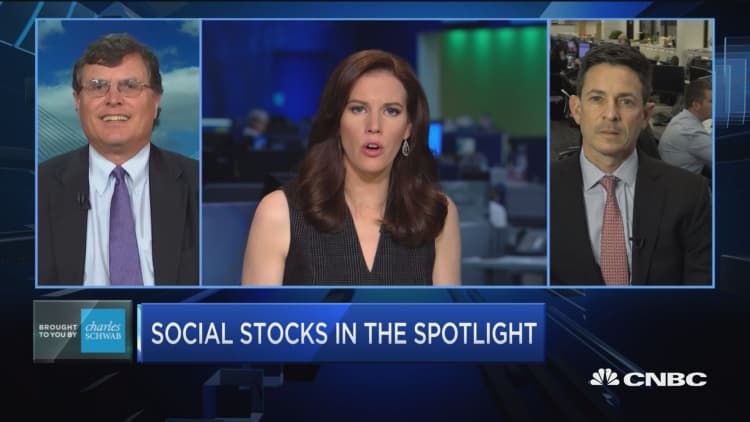Women make up the majority of Twitter's most prolific users, a new Pew Research Center survey has found.
In a report published Wednesday, researchers found a number of differences between Twitter's most active users compared to the majority of people on its platform. According to Pew, an estimated 80% of all tweets from U.S. adult users come from just the top 10% of Twitter users, who tweet a median of 138 messages a month. The median Twitter user, by comparison, posts just two times a month, Pew said.
The gender breakdown of Twitter's most prolific users was among the most surprising findings. Of this group of vocal Twitter users, 65% are women, compared with just 48% of the less active group of users.
The group of highly active users also tends to tweet more regularly about politics than the bottom 90% of tweeters, according to Pew. Of the respondents in the more prolific group, 42% said they have tweeted about politics in the last 30 days, compared with 13% of respondents from the less active group.
Compared with the general U.S. population, researchers found that Twitter users tend to be younger, more educated and more likely to identify with the Democratic Party.
The study was based on a late 2018 survey of 2,791 U.S. adult Twitter users who agreed to share their Twitter handles with researchers.
The demographic findings could further stoke conversation around Twitter's political leanings. Lawmakers have already ramped up criticism of Twitter and other social media platforms alleging censorship of conservative voices. Earlier this month, a representative from the company faced the Senate Judiciary Committee for a hearing about what Sen. Ted Cruz, R-Texas, called a "consistent pattern of political bias and censorship on the part of big tech," according to The Washington Post.
Watch: Why this trader says Twitter has more upside potential than Facebook, Snap



